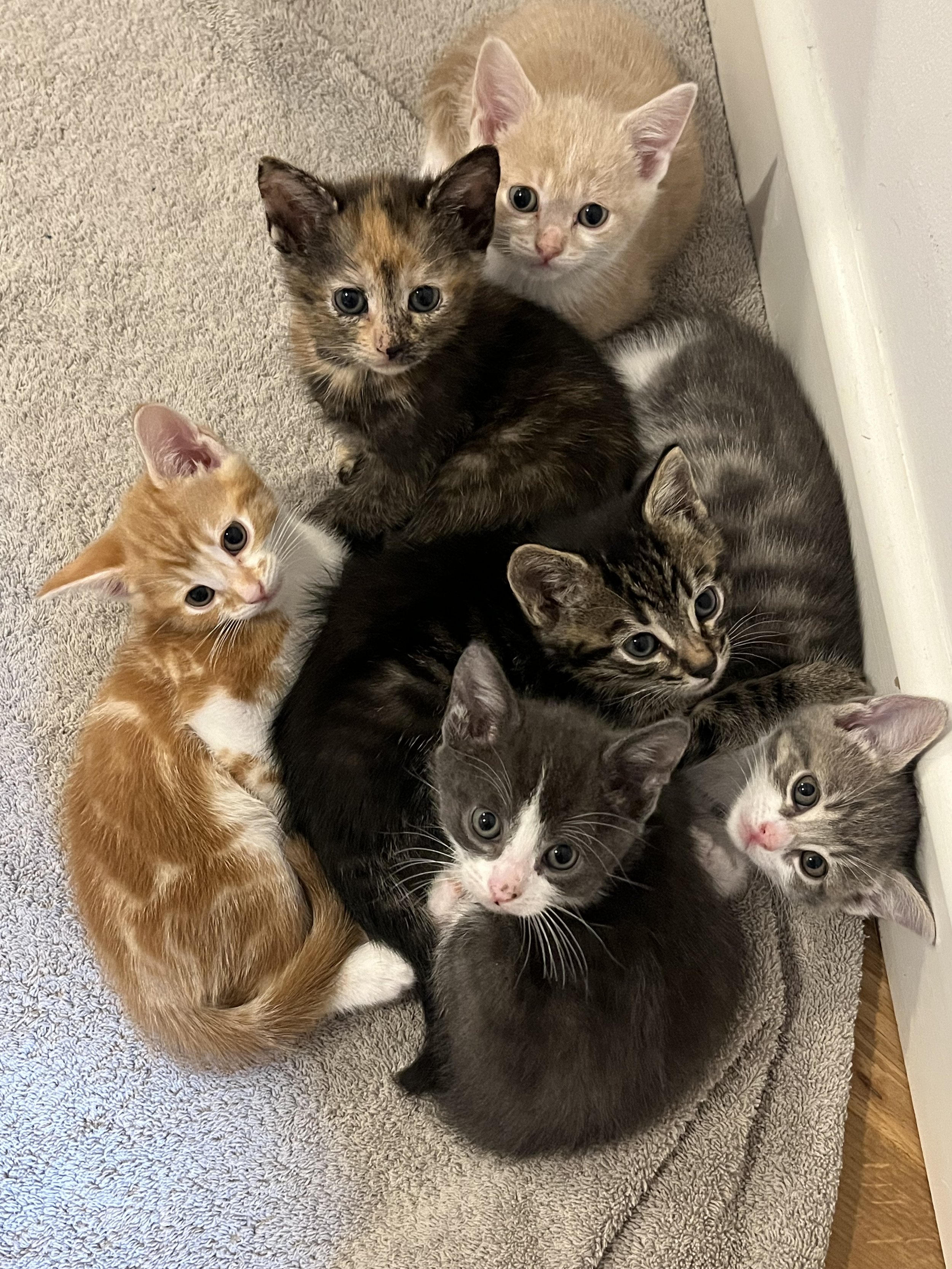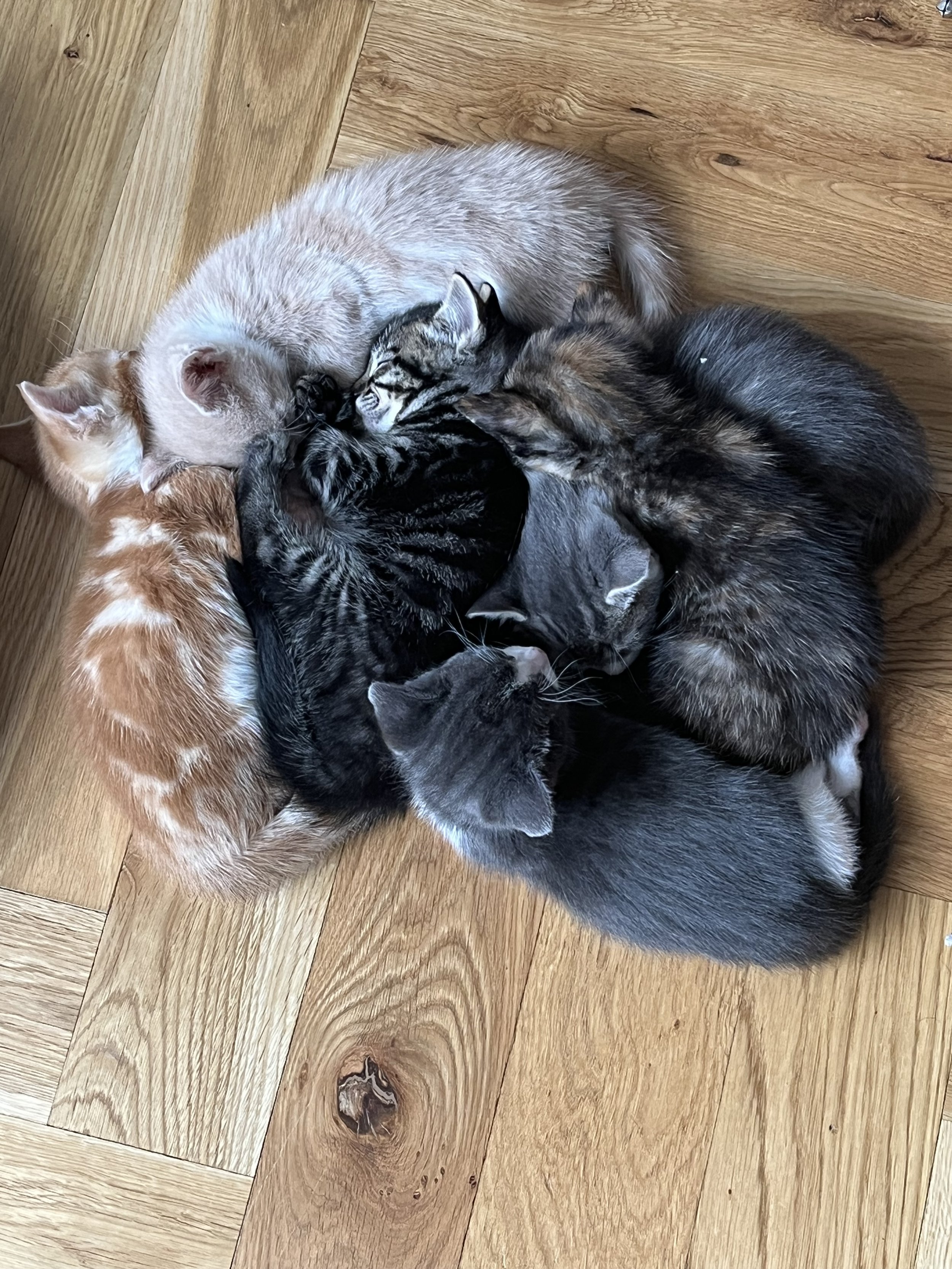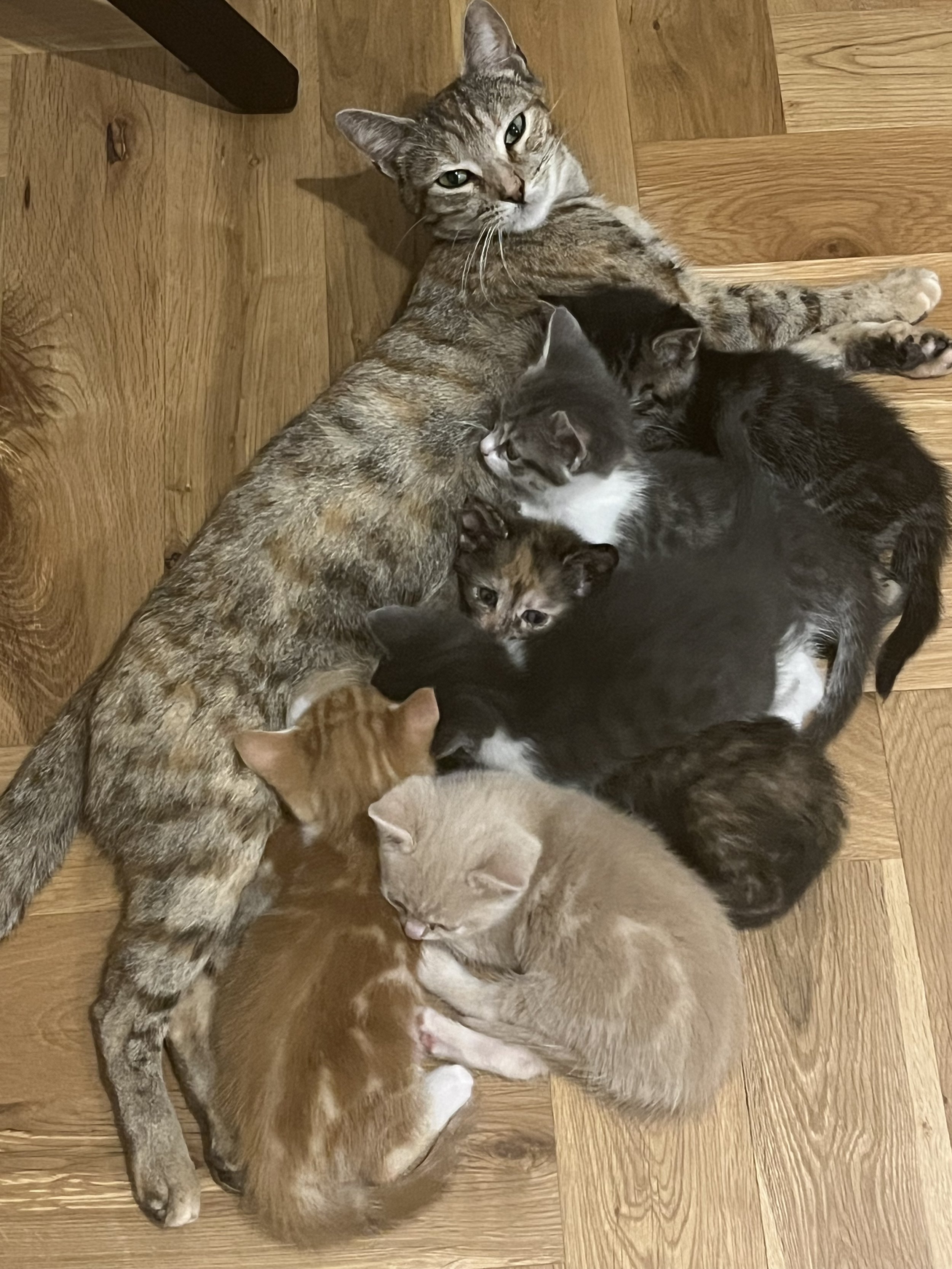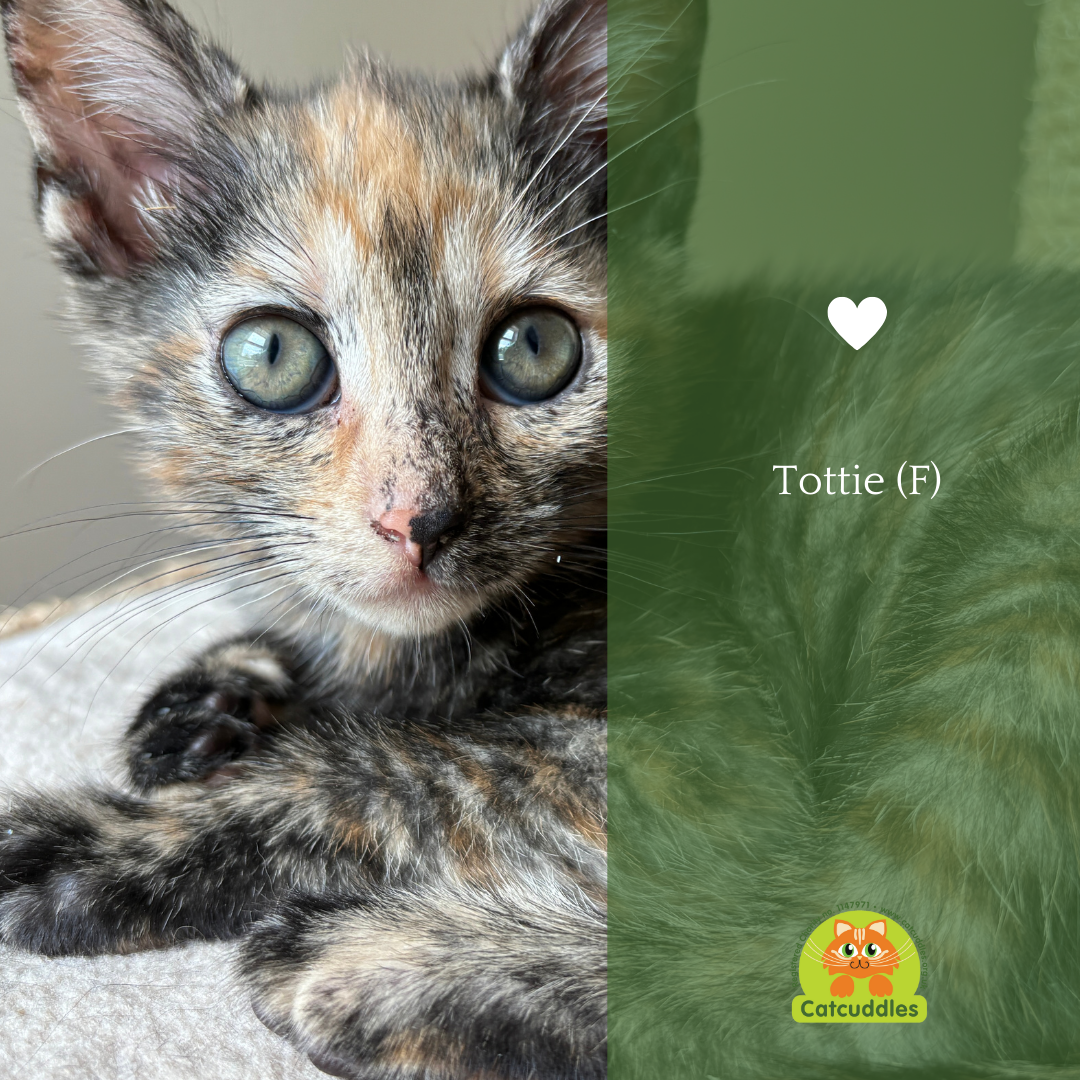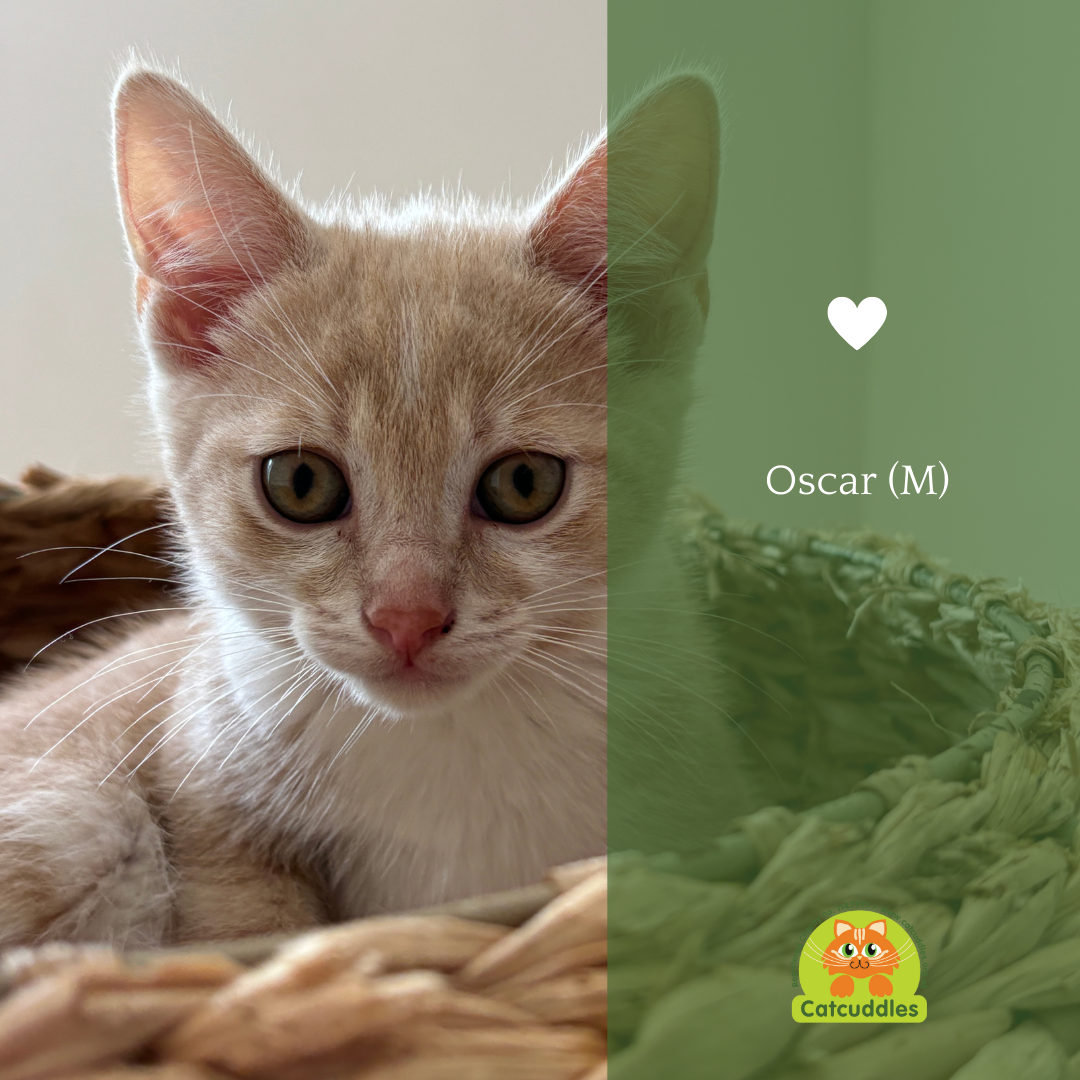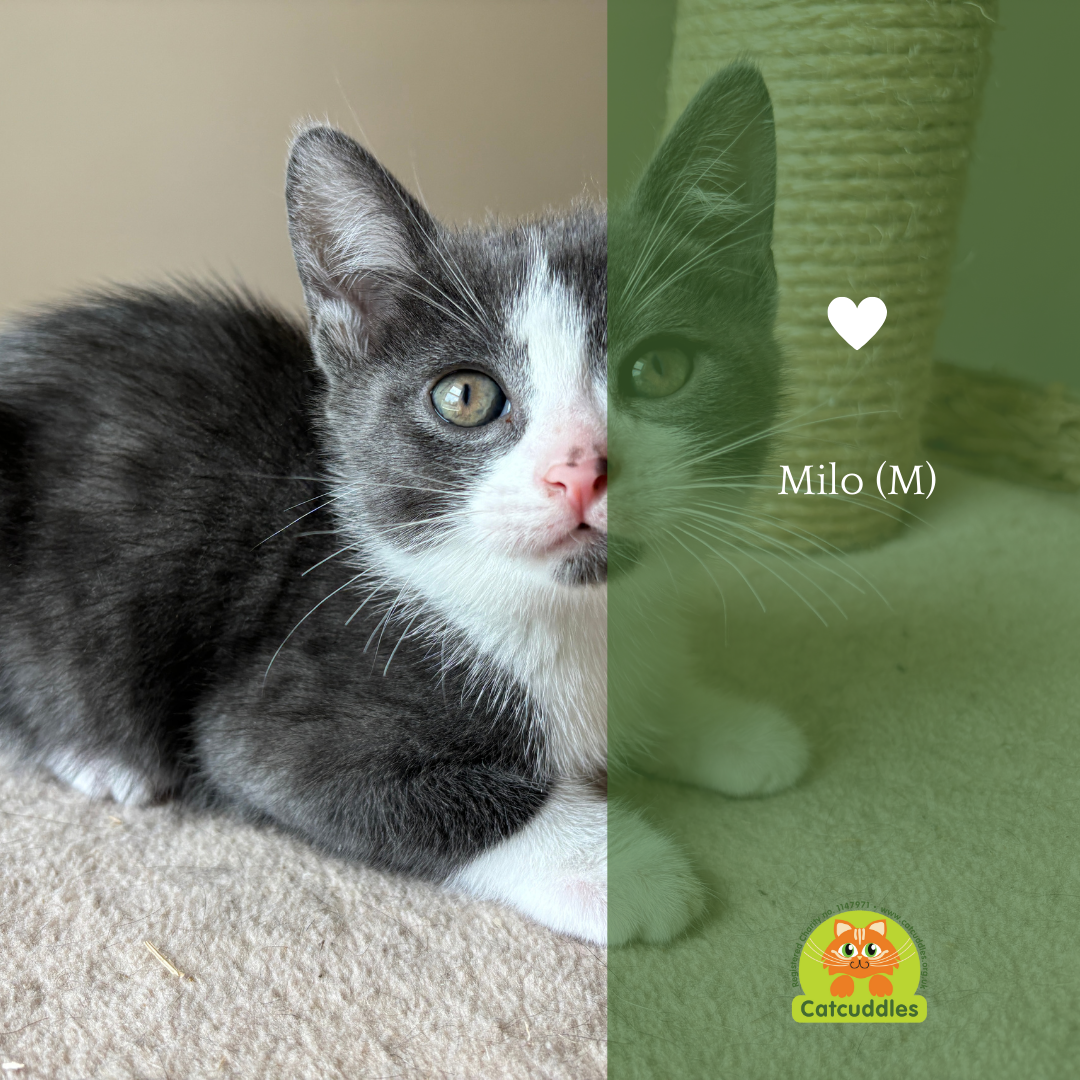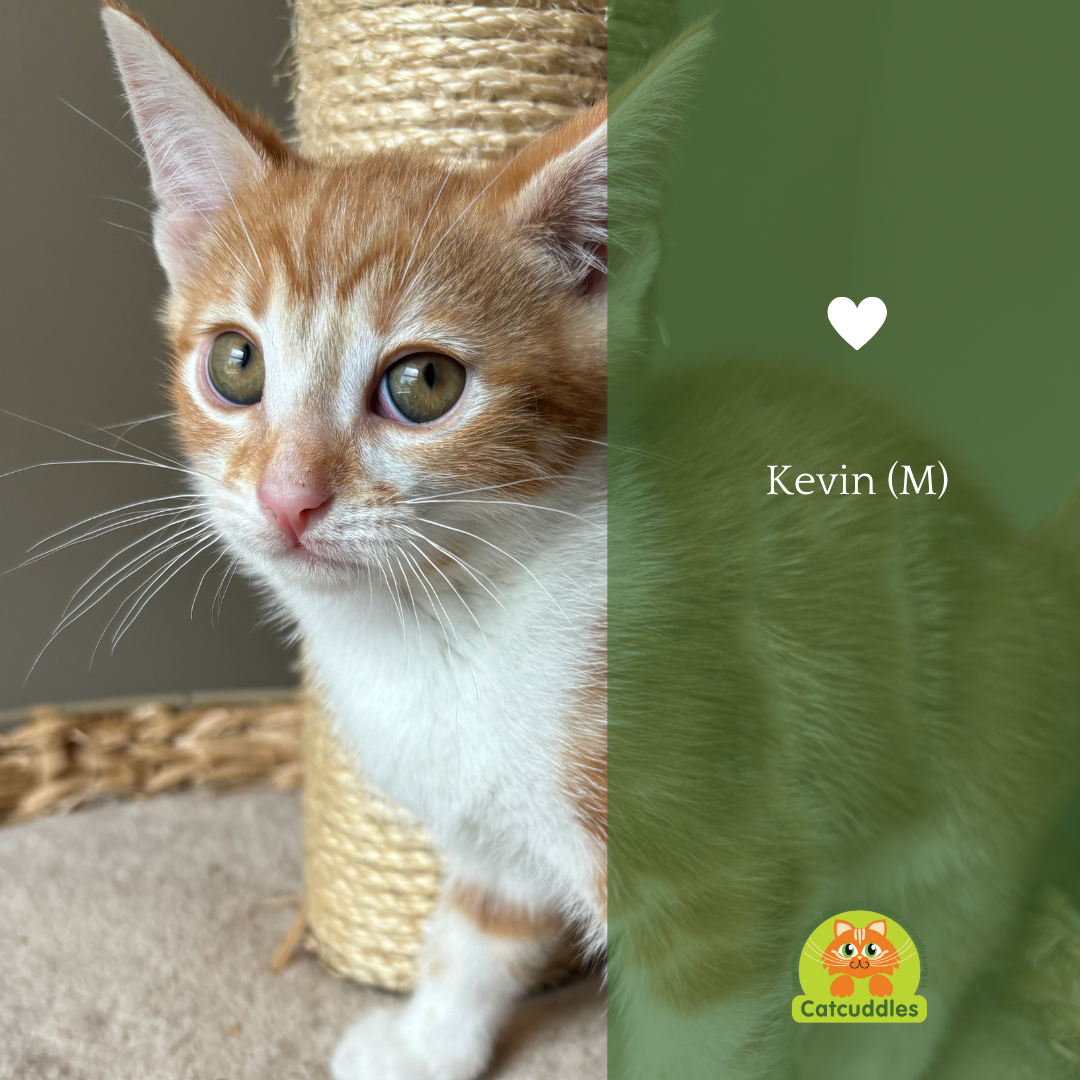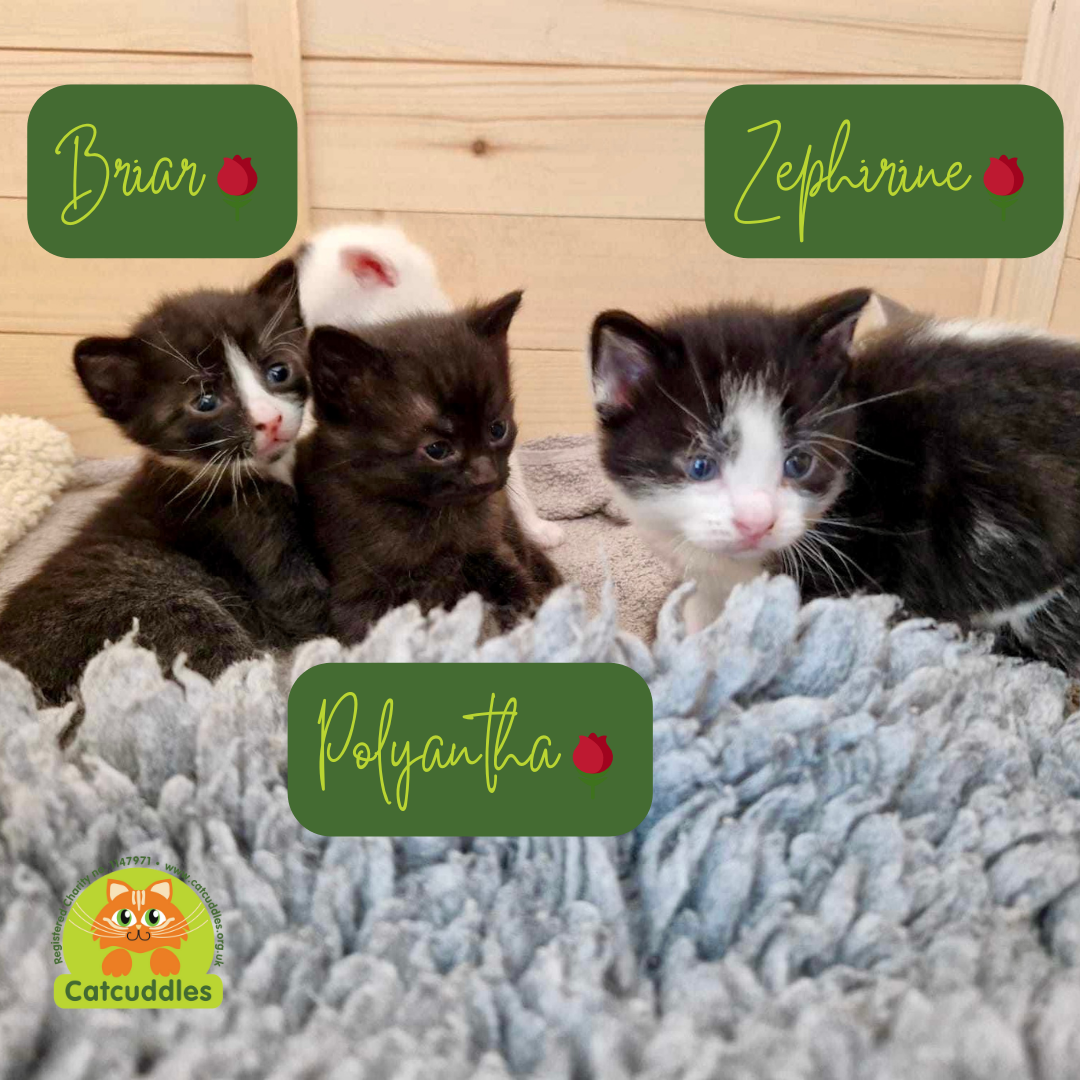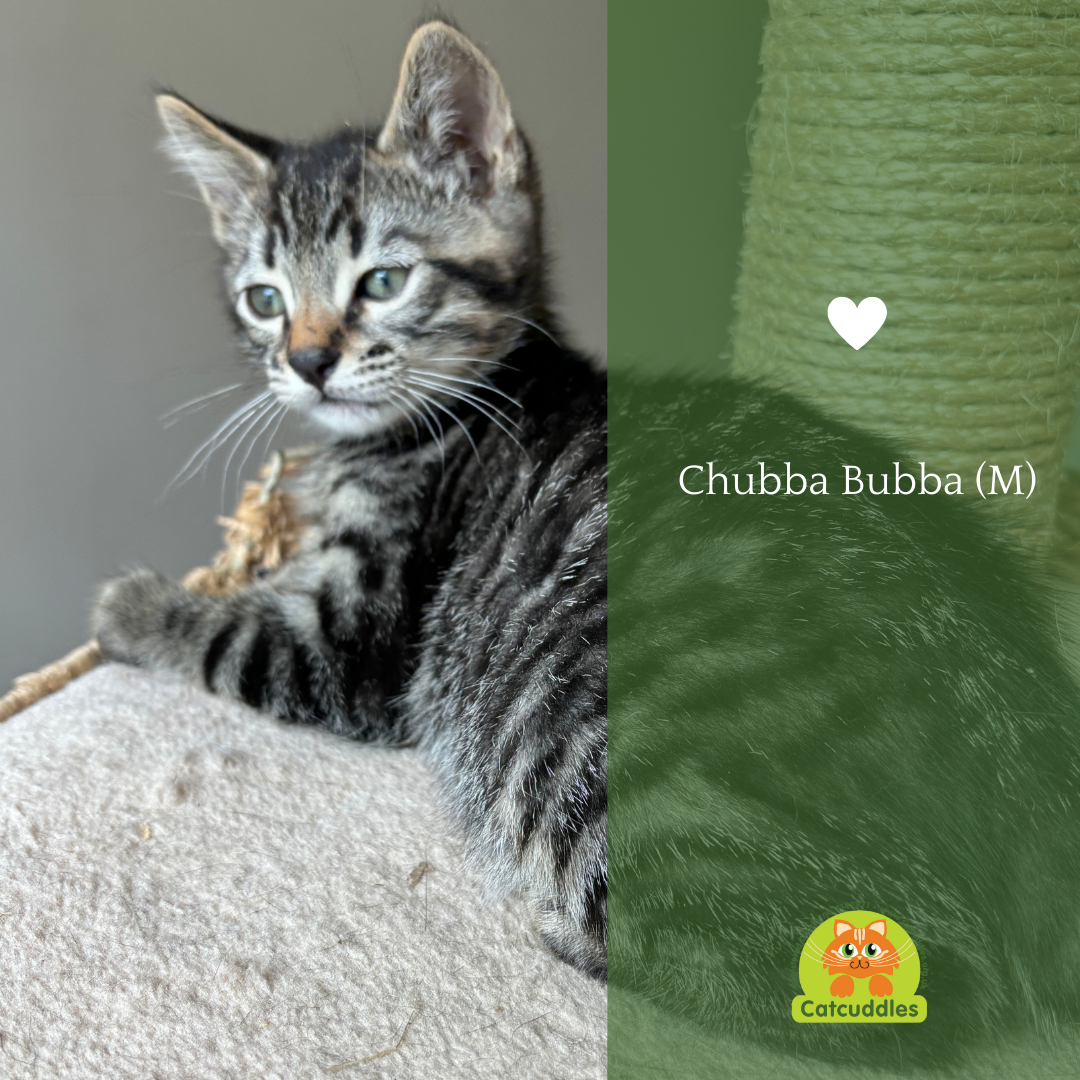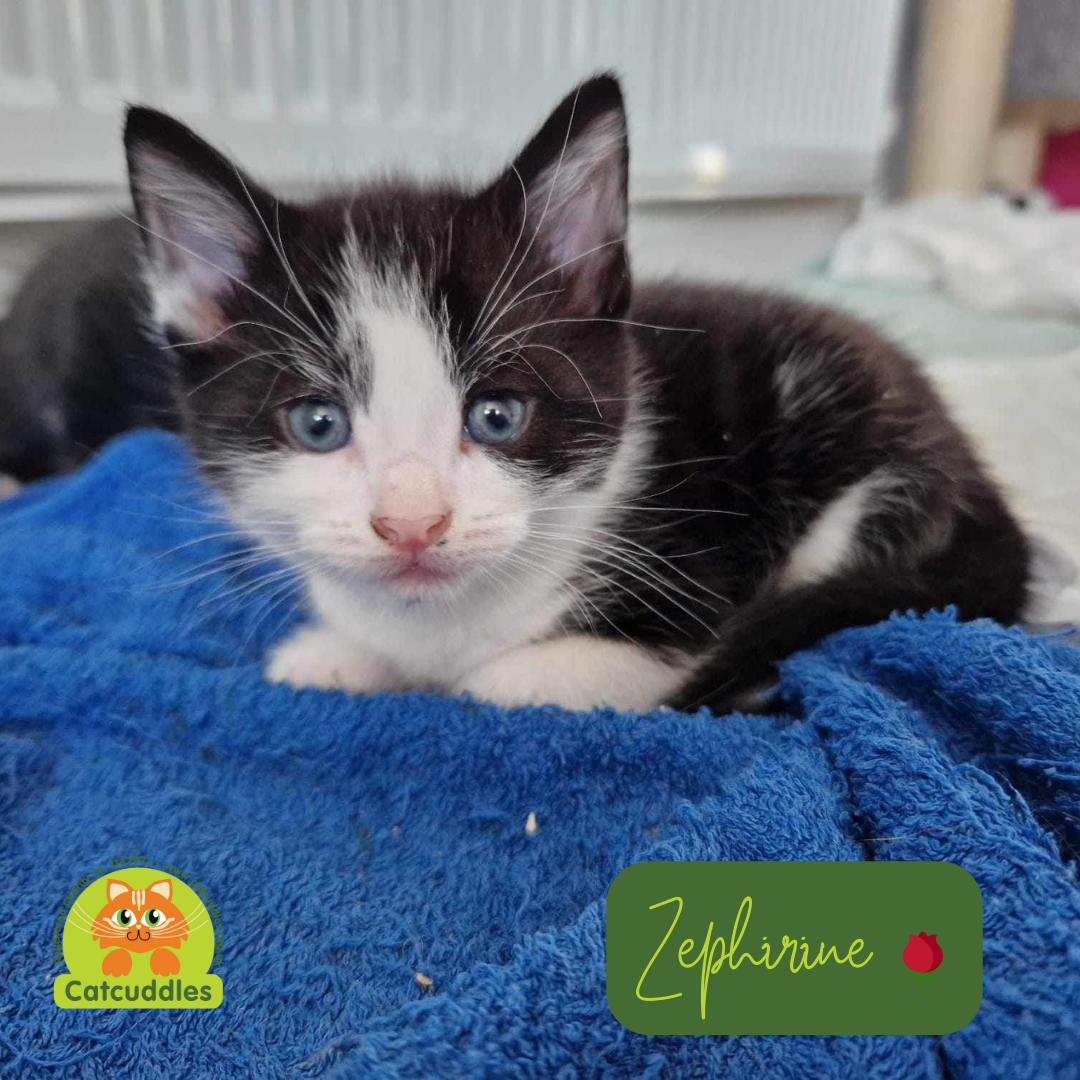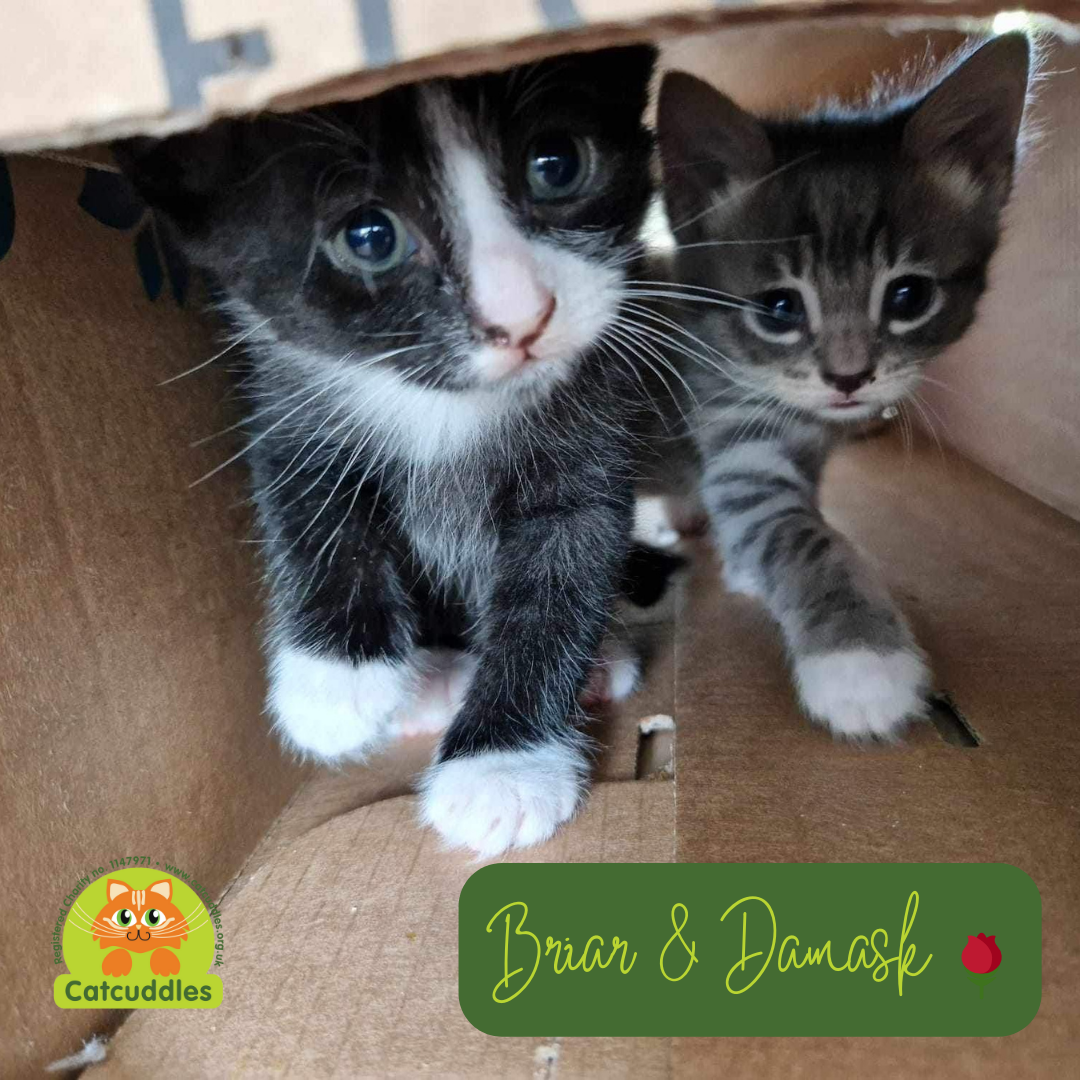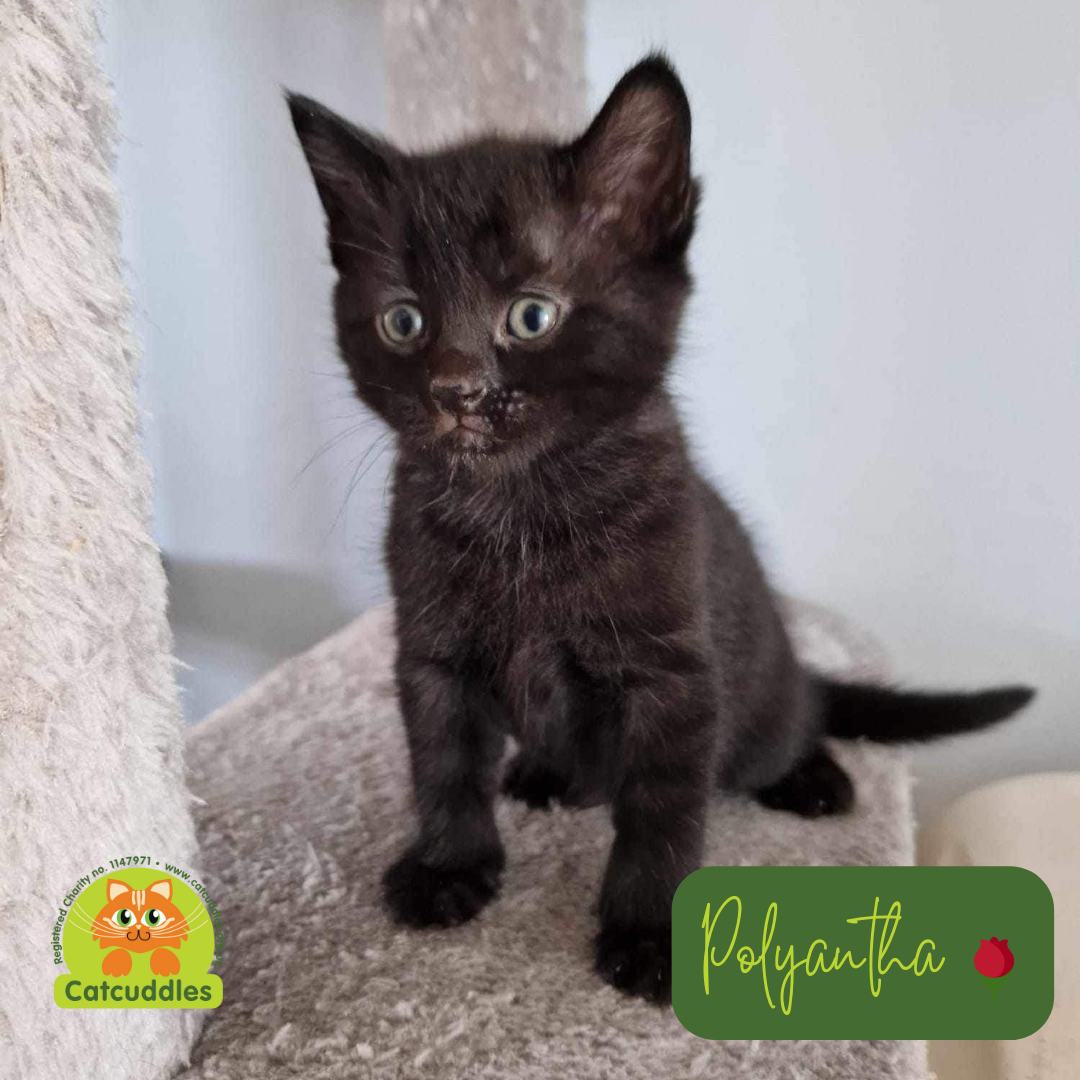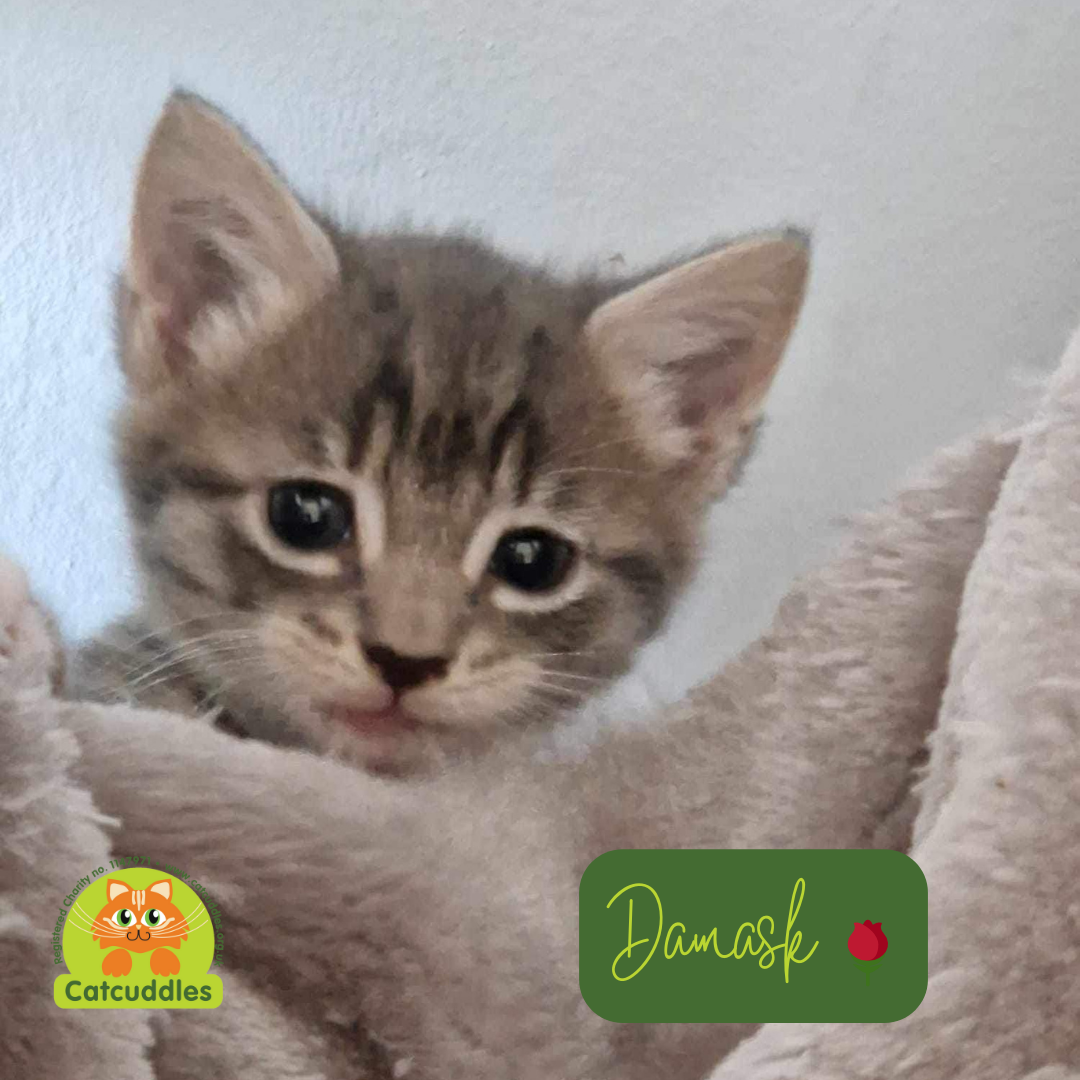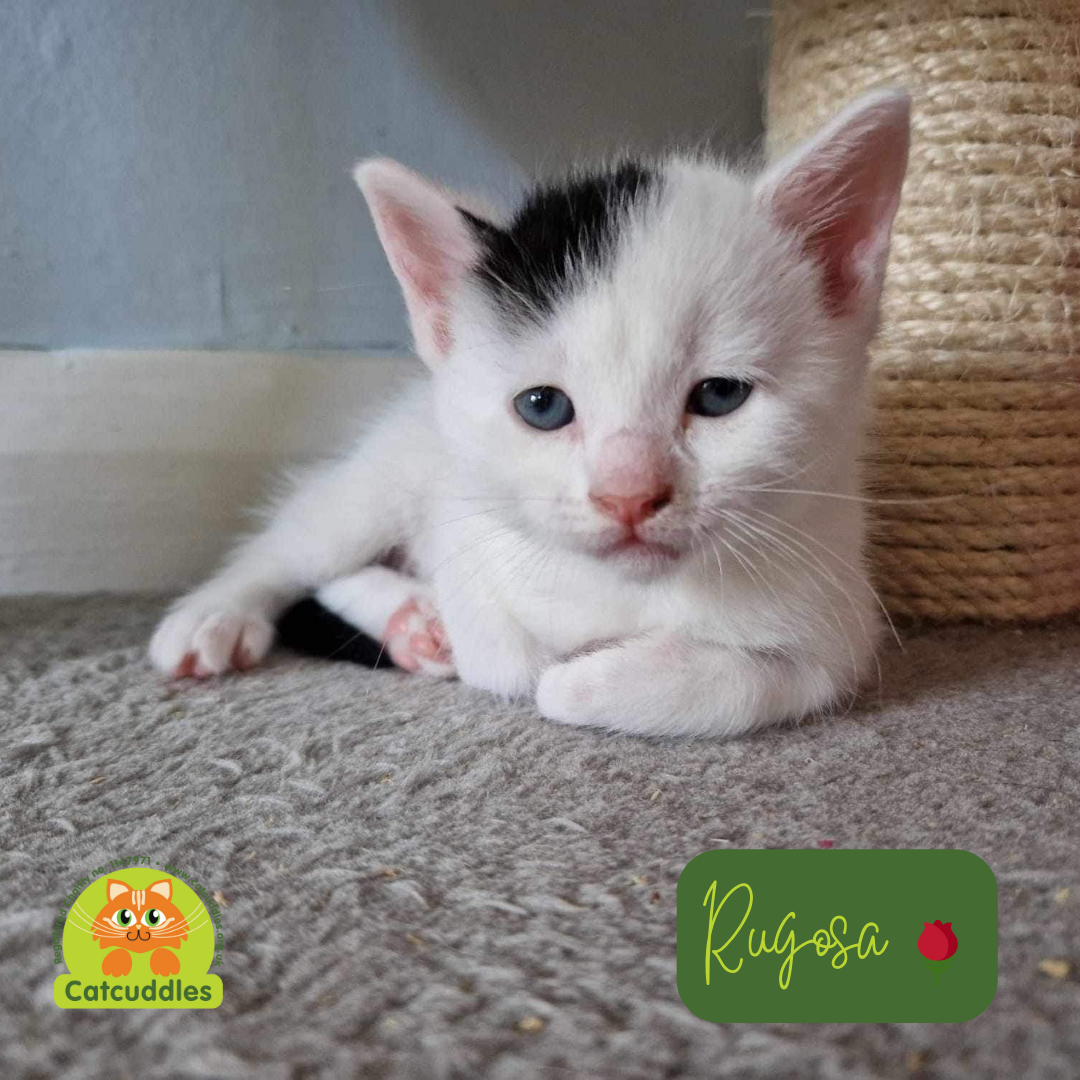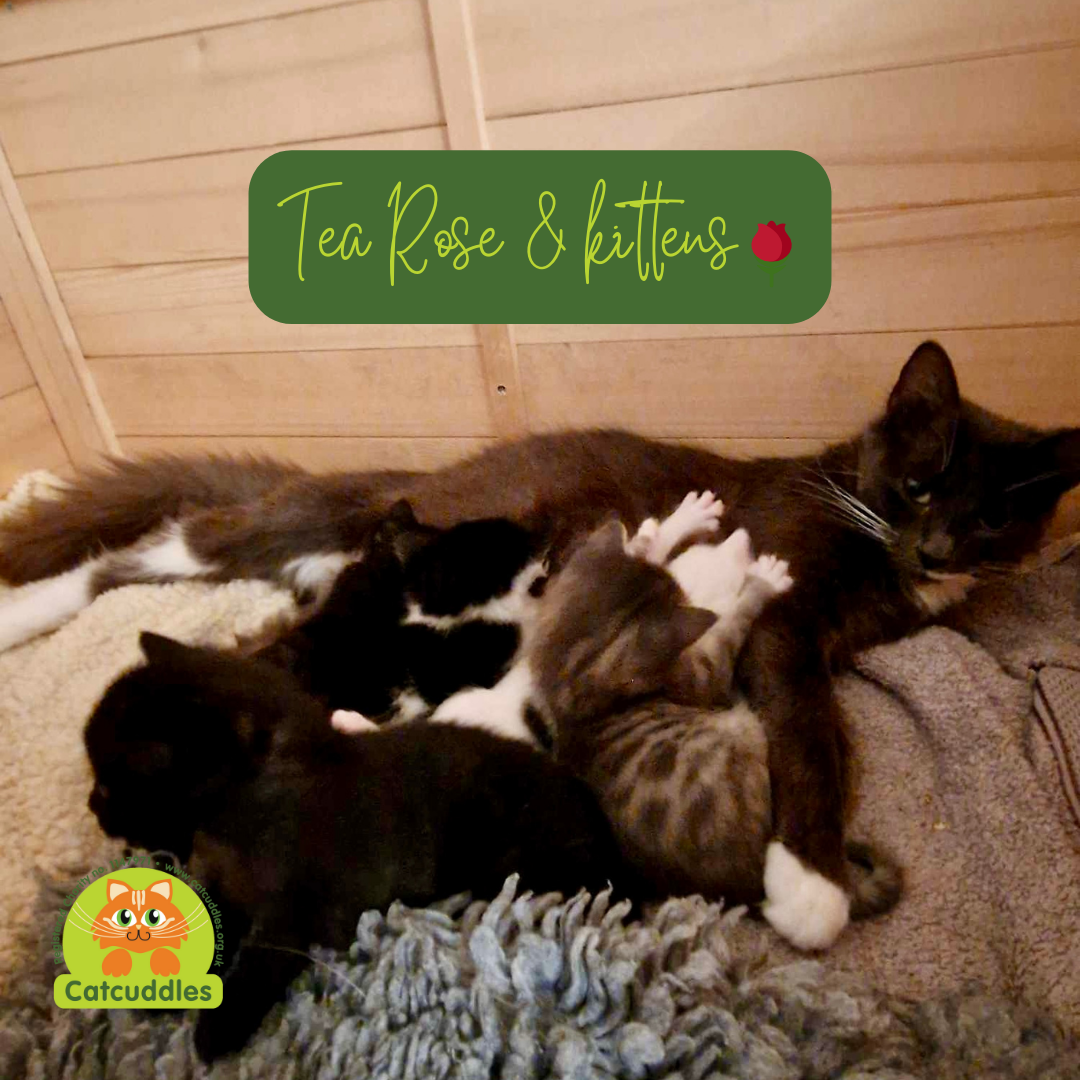Kittens for adoption
Adopting a cat is a lifelong commitment: cats can live for 20+ years. Please read the following information carefully to ensure you understand our requirements for adopting a kitten. We are looking to speak to enquirers ready and able to adopt from now onwards.
Our kittens are adopted in pairs, or as companions to existing cats.
Kittens require huge amounts of stimulation, guidance and attention throughout the day, and cannot be left alone for long periods - companion cats provide them with a little extra company. It is much easier to have a pair of kittens as they will keep each other entertained and grow up much better socialised than a solo kitten would. Of course you’ll still need to devote plenty of time to continue their socialisation.
Kittens adopted from us will need to have access to a garden in a safe location, away from busy roads, once they are of age (no earlier than 6 months old) and of course neutered. A catflap is typically required. We will also consider applications from spacious indoor homes with suitable catproofing and enrichment provided inside the home.
When adopting a young kitten from Catcuddles, you will sign a contract committing to neuter your kitten by the time he or she is four months of age, and we will follow up on this after adoption. This is so important because lack of neutering is the very reason that there are so many unwanted, homeless and neglected kittens in rescue centres in the first place, and so few homes for unwanted and abandoned older cats. Please remember to factor the cost of neutering into plans. Visit the kitten neutering database to locate a suitable Vet and to find out why neutering at 4 months is supported by the British Small Animal Veterinary Association (BSAVA) and British Veterinary Association (BVA).
All kittens adopted from us have had at least their first vaccinations and are microchipped and health checked. Any kittens needing to complete their vaccination course will need to do so 3-4 weeks after adoption with a compatible vaccine (leucofeligen).
We are happy to home suitable kittens to homes with children provided the children have had some experience with animals and are kind and respectful towards them.
It is a lifetime requirement for kittens who will have eventually have access to the outside to always be provided with an appropriately sized litter tray inside for their urinary health.
Preparing for kittens
There will be kittens available in the coming months. It is far better to wait until you are going to be home for at least two months before going away for longer than a weekend, and that you have no forthcoming building works or other disruptions on the horizon.
You will need to have one quieter room in your home you can dedicate to your kittens for their first week so they can get used to their new environment and establish a good routine before being introduced at their own pace to the rest of their home. The adoptions team can give further advice and feedback on a suitable space and how to ensure your home is kittenproof. For hygiene we would always recommend waterproof mattress protectors on all beds as a precautionary measure when slowly introducing kittens to your home.
When getting ready for kittens you will need to ensure windows are kept closed or securely open no more than 1-1.5 inches and that cleaning products, food, plants and flowers are always kept out of reach. Do you need to organise for any catproofing of your windows to prepare for warmer weather? Taking precautious is essential and will be covered with our adoptions team during the home visit. Any plants that are not cat safe should be removed, and even cat friendly plants should not be left for them to chew on (cat grass being the exception!) Unsure what is and isn’t safe? Visit ASPCA for advice.
Kittens are intrepid explorers and will climb into the smallest spaces and onto shelves. Keep surfaces free for them to explore, but also ensure you provide a suitable cat tower to give them a vantage point and somewhere safe to spend time on. If you need tips on kitten proofing why not read this advice?
Young kittens should not be restricted with their food but you should get them used to meal times. After neutering and by the time they are six months old and ready to have supervised visits outside you they need to be happy with meal times and not resorting to grazing. This helps in two ways: to ensure they do not gain excess weight and so they are incentivised to come home when hungry.
After adoption you’ll need to keep in regular contact during the first six months to provide us with updates and seek support if needed, and Catcuddles is always here beyond this period as needed.
If you do not yet have a catflap you’ll need to ensure this is installed within 6 weeks of adoption. We’d recommend a dual scan, microchip cat flap. This ensures only your cats can access your home but also enables you to shut the catflap to one cat when needed as well.
If you live on a busy road why not build a catio or buy one from a specialist company or ask a local carpenter to build you one?
Ensure no one in the home has allergies, if you have any doubts do research and speak to the Adoptions Team, do not hope that things will just turn out ok!
Ready to enquire?
If you haven’t done so already read our tips regarding adoption here. When submitting an enquiry don’t forget to give us as much experience on your experience and the home you have to offer. Our priority is to match felines with homes that suit their needs, character and long term requirements so please be opened minded on the recommendations from our experienced adoptions team volunteers and please ensure you feel ready to adopt before submitting your enquiry out of consideration to our volunteers. Enquiries for a specific coat colour or fur length may be disregarded; this has no bearing on a kitten’s ability to settle into their forever home.

